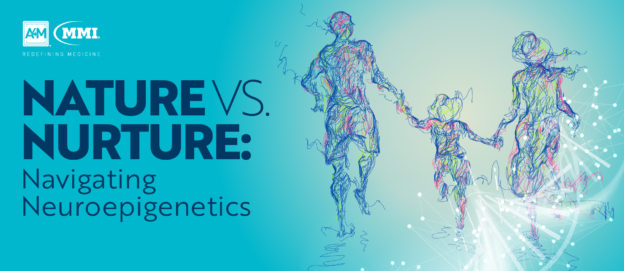The debate regarding the origins of human behavior, and the conflict between nature versus nurture, has been philosophized, researched, and argued for over a millennium. In the last 30 years, however, a field of genetic-biology has positioned itself to wholly restructure the fundamental basis for the debate: neuroepigenetics.
Neuroepigenetics is the study of how dynamic epigenetic changes affect the nervous system, and concurrently, neurological behaviors. Within this emerging field, scientists have increasingly found that the dichotomy between nurture and nature has been widely misunderstood. Rather, as pharmacology professor and neurobiology expert J. David Sweatt explains, “It is now clear that there is a dynamic interplay between genes and experience, a clearly delineated and biochemically driven mechanistic interface between nature and nurture.”
Recent studies have found strong links between neuroepigenetic modifications and neurological conditions such as addiction, epilepsy, dyslexia, Alzheimer’s disease, and many other cognitive disorders. Research indicates that environmental experiences including toxic exposure, stress, early learning, and maternal behavior can cause actual genomic modifications: adjustments that ultimately create changes in gene readout, which can permanently alter neural functions.
Having a more nuanced understanding of neuroepigenetic changes may radically alter the ways in which we view, examine, and evaluate neurological behaviors, and how various neurological conditions are treated. With this foresight, a team of researchers at the Martinos Center for Biomedical Imaging at Massachusetts General Hospital have developed a PET radiotracer that can reveal epigenetic activity. Regarding the value of developing technology to better understand the interaction between genes and environment, Dr. Jacob Hooker, senior author of the radiotracer report, stated: “This could allow us to investigate questions such as why some people genetically predisposed to a disease are protected from it? Why events during early life and adolescence have such a lasting impact on brain health? Is it possible to ‘reset’ gene expression in the human brain?”
While neuroepigenetic research is still in the nascent stages of development, the very emergence of the field has given way to a more complex understanding of the interplay between human behavior and genetics. The longstanding nature versus nurture debate can now transform into a new, more comprehensive discussion that better addresses and understands neurological conditions, and seeks to address them through the development of more advanced, personalized treatments.
SOURCES
https://www.sciencedaily.com/releases/2016/08/160810180906.htm
https://www-sciencedirect-com.proxy.pba.edu/science/article/pii/S0149763418301040
Sweatt, J. (2013). The Emerging Field of Neuroepigenetics. Neuron, 80(3), 624-632.

